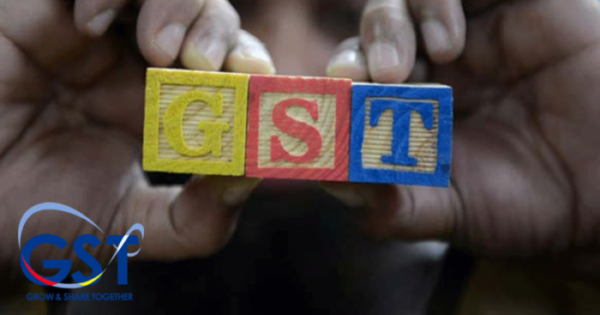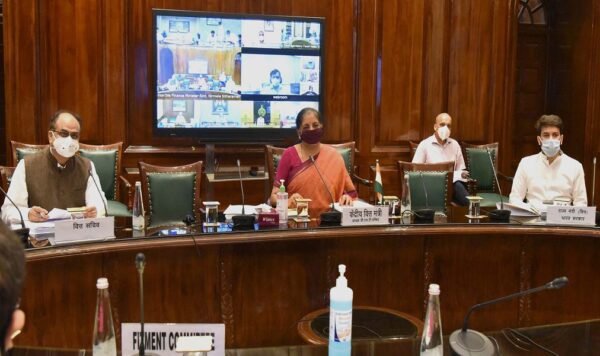The Madras High Court while quashing levy of interest on Input Tax Credit (ITC), directed the authority to refund recoveries effected through the bank, as the Court is of opinion that proviso inserted vide Section 100 of the Finance (No.2) Act of 2019 is to be taken on retrospective effect, despite Notification No. 63/2020-Central Tax dated 25.08.2020 which stated that same would be operative from 01.09.2020.
Facts of the case:
- The batch of writ petitions was filed for the issuance of writ of Certiorari to call for records of the Responsdent in the impugned demand and impugned notice in regard to recovery of interest.
- The writ petitions revolved around the interpretation of Section 50 of the Central Goods and Services Tax Act, 2017, particularly the effective date of application of the proviso inserted vide Section 100 of Finance (No.2) Act of 2019.
- While the levy of interest on remittances of tax in cash is not in question,the authorities have proceeded to levy interest on remittances of tax by adjustment of available ITC and this was the subject matter challange before the High Court.
Contention of the Petitioner:
- The petitioners argued that the credit was available even prior to the arising of the output tax liability and hence the question of delay does not arise.
- It was further argued that no opportunity was granted prior to raising of the impugned demand and consequential proceedings and interest is a measure of compensation and since ITC is already available in the electronic ledger, there is no question of the same being due to the revenue.
- Another argument put forth by the petitioners was that the proviso to Section 50 of the Act which states that interest shall be levied only on that part of that paid in cash has been inserted to set right an anomaly and is therefore retrospective in operation.
Contention of the Revenue:
The revenue argued that Section 16(2) of the CGST Act entitles a person to take credit of input tax and Section 41(1) provides for a credit entry in the electronic credit ledger, which is provisional in nature. Since Section 41 provides that the entitlement to credit is only with the filing of return on self-assessment basis, this entitlement cannot be availed of till such time a return is filed by an assessee.
Order of Gujarat High Court: Deliberations and Ruling:
- CBIC has vide its administrative instructions dated 18.09.2020 Board has yet again reiterated that the amendment by insertion of proviso of Section 50 of the CGST Act is intended to be retrospective.
- Perhaps the relegation of the show cause notices to the call book is to await the passing of the amendments in the central and state statutes.
- To my mind, the Centre, the State and the CBIC are in agreement that the operation of the proviso of Section 50 should only be retrospective and the interpretation to the contrary by the authorities constituted under the Board is, in my view, clearly misplaced as is the consequential coercive recovery.
- The Board has,in my view, extended a waiver of recovery for the past period in line with the decisions of the Council (vi) Notification dated September 18, 2020, that cemented the long line of assurances of the GST Council and the Board in letter and spirit. While promising that the amendment in question will be clarified to be retrospective, the Board has indicated certain difficulties in carrying out the stated amendment at this juncture.
- I would be loath to speculate on the nature of the difficulties expressed and restrict myself to concluding that the sequence of events that I have set out above make it more than amply clear to me that the present writ petitions are liable to be allowed.
In view of above deliberations the single judge bench of Justice Anita Sumanth while adjudging that the insertion of the proviso to be taken retrospective, allowed the writ petitions and oredred for lifting of the attachments. However the court said that the Assessing Officers are at liberty to raise fresh demands relating to interest on delayed remittances of tax by cash, in accordance with law.
***
[rainbow]Don’t miss the next GST Update / Article / Judicial pronouncement[/rainbow]
Subscribe to our newsletter from FREE to stay updated on GST Law
Resolve your GST queries from national level experts on GST free of cost.
Frah Saeed is a law graduate specializing in the core field of indirect taxes and is the Co-founder of taxwallah.com. She has authored many publications on GST and is into full-time consultancy on GST to big corporates. She as a part of taxwallah.com heads a team comprising of Chartered Accountants and Advocates and plays a key role in our mission to disseminate GST knowledge to all.



